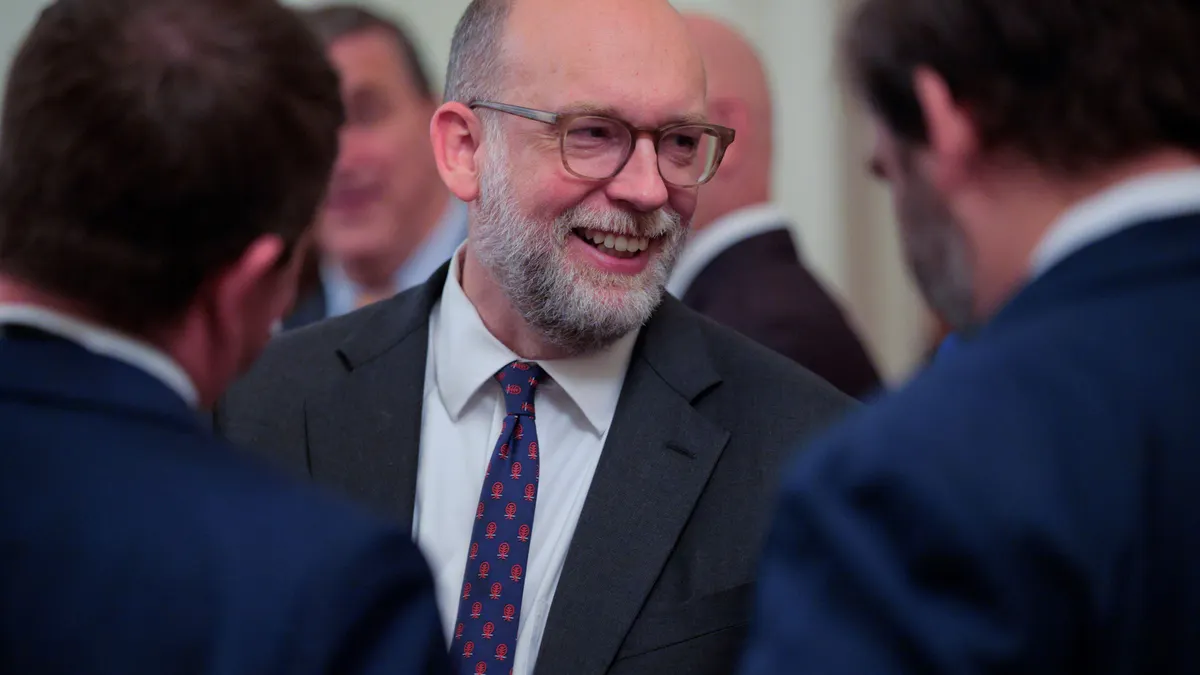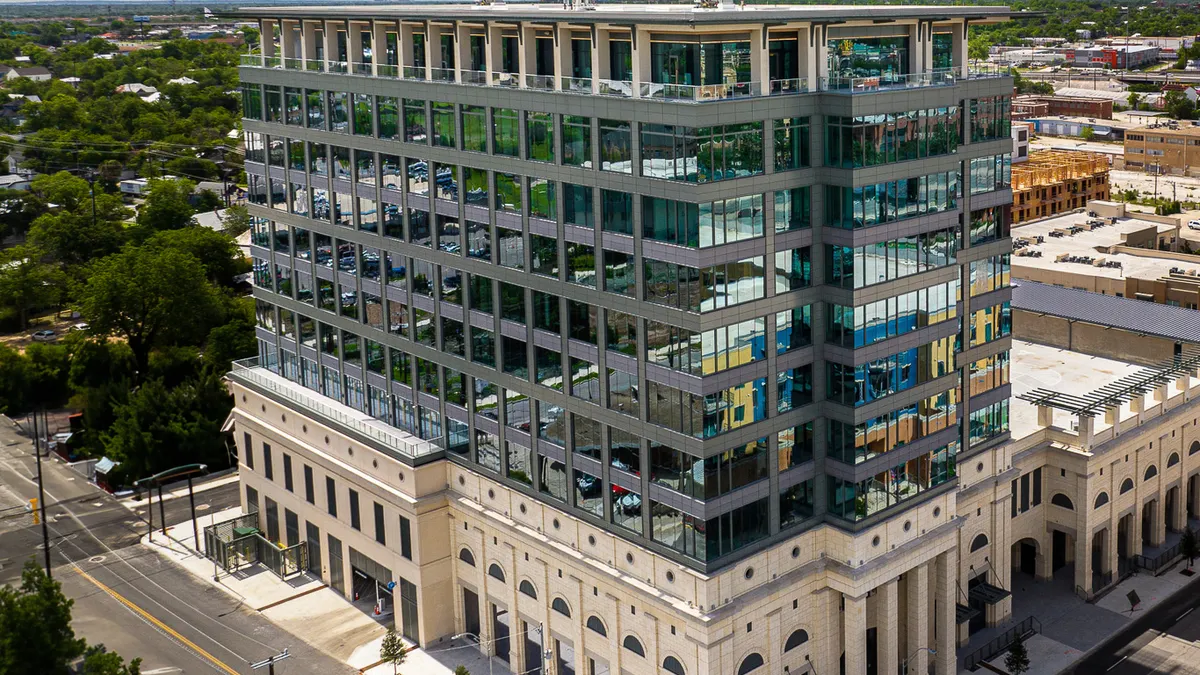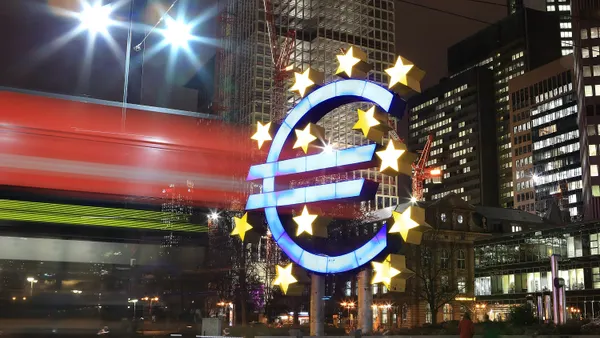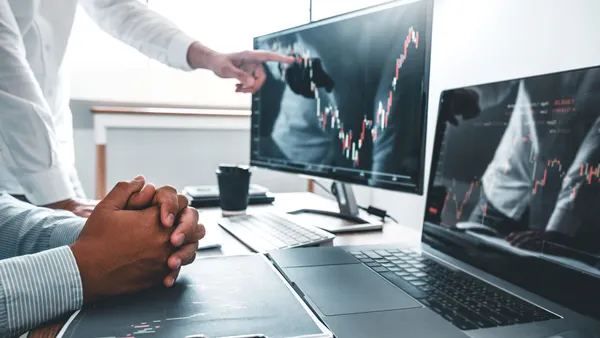As Paycheck Protection Program (PPP) loans continue to roll out, lenders struggle to evaluate the health and viability of small businesses in the COVID era. Some fintechs, such as Intuit, Lendio and BlueVine, still see waves of PPP loan applications. Others, like BFS Capital, have chosen to tighten restrictions and not to participate in PPP lending.
"We chose not to pursue the PPP loans ourselves. We were concerned about back-end liquidity issues, we were concerned about getting onboarded as an approved lender. We were concerned about the way the program is changing," said Mark Ruddock, the CEO of BFS Capital, during a recent LendIt webinar. Even so, the past two months have been "an equally intense period for us," Ruddock said.
Risk aside, BFS had other reasons for excusing themselves from PPP. The company was executing a massive digital pivot, choosing to place its focus where it knew it could succeed.
"We made the determination that on a cost-benefit basis, we couldn't provide a better or more differentiated value proposition, so we sent folks over to the Lendios of the world and a handful of bank partners whose processes we liked and thought were fairly elegant," he said.
BFS issued a blanket temporary suspension of new loan customers during the third week of March, Ruddock said.
By contrast, Kabbage threw itself into the PPP process, temporarily adjusting its lines of credit to do so. "Just as manufacturers have retooled their processes to build ventilators and masks, we’re doing the same to reallocate our resources to respond to the national emergency and provide financial products that small businesses need most," company spokesman Paul Bernardini said in a March statement to Bloomberg.
Three buckets
BFS divided its existing customer base into three buckets for evaluative purposes: COVID-negative businesses, which were immediately affected by the emergency phase of the pandemic; COVID-neutral; and the COVID-positive — those that might see an increase in profits in the short term. The categorization was based on business segmentation and geography and, Ruddock said, was pretty subjective.
Just because a business is labeled COVID-negative, neutral or positive during the crisis doesn't mean the designation will stick during the recovery phase. BFS considers a number of factors, such as the health of the business coming into the crisis, its level of preparedness, resiliency, the ability of its owners to support it financially, and whether it was under-leveraged or over-leveraged previously, Ruddock said.
The company's underwriting process changed virtually overnight, Ruddock said, into a continually evolving model that makes real-time changes to lending criteria in direct response to the company’s log book. BFS diversified risk in its portfolio and leaned on a tight relationship with senior debt.
"We went to senior debt first and said, 'These are the new guardrails we need to be able to operate through the crisis,'" Ruddock said. "Then we were able to go back to the customers and give them a range of menu options."
The company's inbound call volume grew threefold, Ruddock said.
Now, BFS is looking toward how to bring customers back to their original loan parameters, as renewal dates have been pushed further out, and will require more of the loan being paid down than before.
"We will now be repackaging a lot of those regular loans [for stable businesses] and moving forward," Ruddock said. "They basically come out of the penalty box.
"Lending looks different post-pandemic. It will involve much more real-time data," he added. "Our pivot to algorithmic mobile-first is being accelerated by this crisis."
'Accelerated' distress cycle
The coronavirus crisis has given fintechs the opportunity to help small businesses by providing better customer experiences and offering banks leading technology, said Luke Voiles, vice president and business leader at Intuit’s QuickBooks Capital.
"In this cycle, everything is performing like high-risk industries, dropping off in a similar way," Voiles said. "My whole career was spent buying loans from banks in distress cycle, and this distress cycle was so accelerated, it blows my mind. Nobody could've prepared for this."
Eyal Lifshitz, CEO and founder of BlueVine, said it is in everyone's best interest to help small businesses because they make up roughly half of the economy’s gross domestic product.
Before the pandemic, nonbank lenders supplied around one-third of lending to small businesses, Lifshitz said.
"Now it's not something on the sidelines," he said. "It's a major part of the industry that is necessary for the recovery of the economy."
Economic disruption from the pandemic is not that of a normal recession, Lifshitz said. It's a combination of natural disaster with strong macro shock.
"Recovery for lending is not recovery of the economy, but we will have enough data to underwrite and feel good about lending in a recessionary environment," he said.













